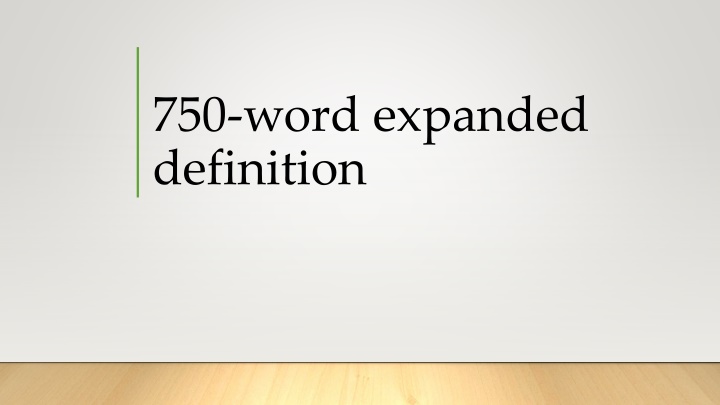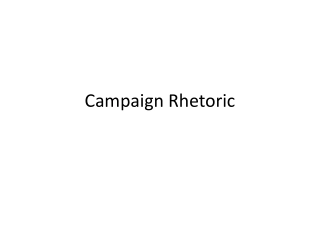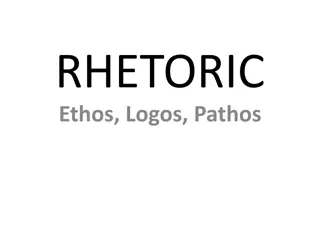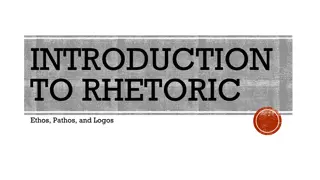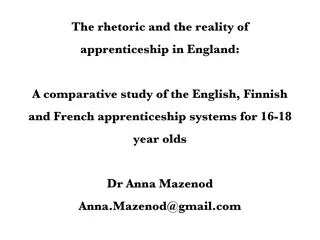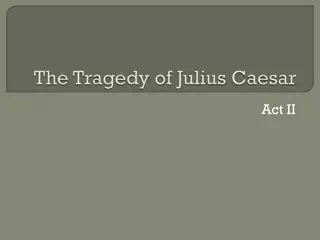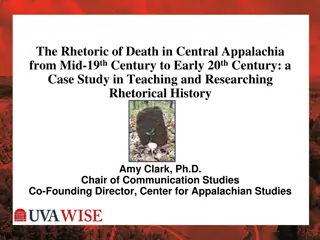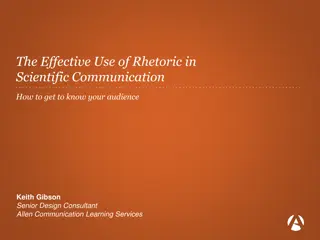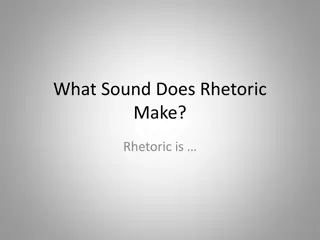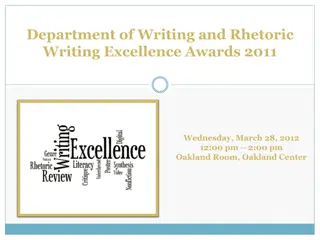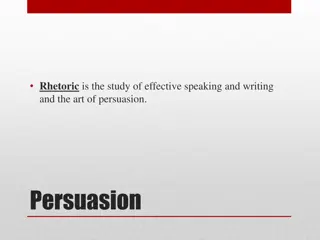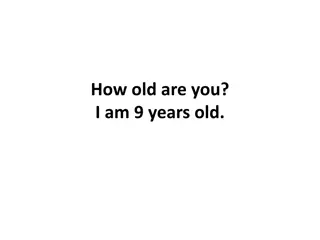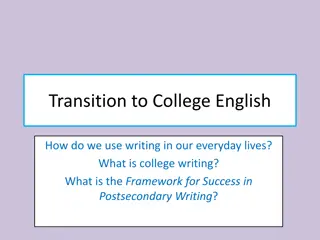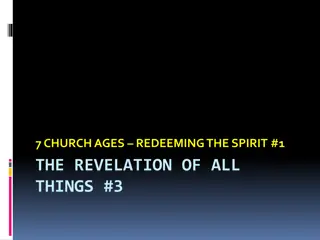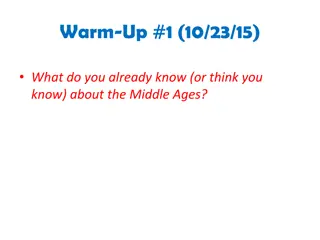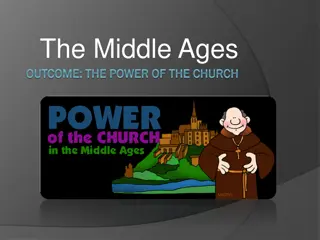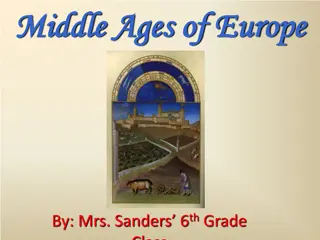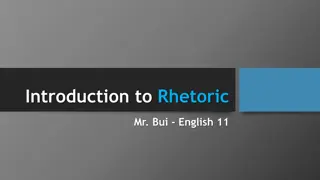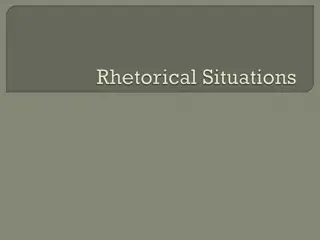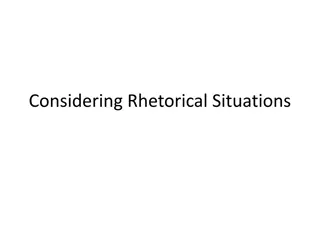Exploring Rhetoric Through the Ages
Delve into the evolution of the term "rhetoric" from its origins in Ancient Greece to its modern-day interpretations. Discover how rhetoric has transformed, encompassing various meanings and contexts, shaping communication strategies over time. Uncover the impact of rhetoric on discourse and its role in shaping persuasive language and symbolic actions.
Download Presentation

Please find below an Image/Link to download the presentation.
The content on the website is provided AS IS for your information and personal use only. It may not be sold, licensed, or shared on other websites without obtaining consent from the author.If you encounter any issues during the download, it is possible that the publisher has removed the file from their server.
You are allowed to download the files provided on this website for personal or commercial use, subject to the condition that they are used lawfully. All files are the property of their respective owners.
The content on the website is provided AS IS for your information and personal use only. It may not be sold, licensed, or shared on other websites without obtaining consent from the author.
E N D
Presentation Transcript
750-word expanded definition
General assignment Individually, you will write a 750-1000 word expanded definition of a technical or scientific term, with cover memo, which demonstrates: 1. correct memorandum format. 2. knowledge of the etymology and historical development of the term. 3. examples of the term's use in various written contexts. 4. ability to compare and contrast various uses of the term. 5. use and citation of sources with proper attribution. 6. awareness of audience. At least three library-sourced citations are required and should be cited following APA format.
What youll be doing Find a term in your field that s important. Define it in your own words. Start with Wikipedia to find the etymology of the word and sources you can use to show how the word is used in different fields. Show us how the word is used in different contexts with different audiences.
General format There s a complete template for this on the Open Lab site under Major Assignments 750-word Definition. Overall, it s a memo that uses different levels of headings.
An example -- rhetoric My definition. Wikipedia entry: Etymology (from Greek for orator) History of term (from Aristotle to contemporary) My choice of how to approach the different uses/definitions Library research three sources Copy quotations Write down bibliographic information Decide on audiences
Drafting the intro The term rhetoric has been used since Ancient Greece to discuss how messages are crafted. The term itself is from Greek rh torik s, "oratorical ; from rh t r, "public speaker ; related to rh ma, "that which is said or spoken, word, saying ; and ultimately derived from the verb er , "I say, I speak. Originally, rhetoric was one of the three ancient arts of discourse (along with grammar and logic) that were taught to students who intended to be orators. Over the centuries, it has changed definitions, and now means everything from how messages are put together and how we analyze them, to a more contemporary use of rhetoric as meaning empty language.
A definition Kenneth Burke (1969), a modern rhetorical theorist, wrote that [y]ou persuade a man only insofar as you can talk his language by speech, gesture, tonality, order, image, attitude, idea, identifying your way with his (p. 55). Burke was one of the first rhetoricians to discuss rhetoric as symbolic action , that is, where discourse and human beings interact in the real world. Burke thought of rhetoric as a living, lively part of how we craft, send, and interpret messages, and that we re all in conversation with each other, even if there s no immediate feedback. He argued that we need to understand each other s position before persuasion can take place. His approach was, and still is, a major influence on how we think about and teach rhetoric.
A context sentence. Sentence: This term, we ll be learning rhetoric, which is the art and science of putting messages together in order to create a specific outcome in an audience. Audience: First year composition students. Audience analysis: Students who have probably never heard of rhetoric, or if they have, it s in terms of logos, ethos, and pathos. This will be new to them. Most of the students will be just out of high school. Purpose & Context: I use rhetoric in this way the first week of the term so that it s simple and not threatening, hopefully showing it s a tool and not a THING.
References Burke, Kenneth (1969). A Rhetoric of Motives. Berkeley: U of California Press.
